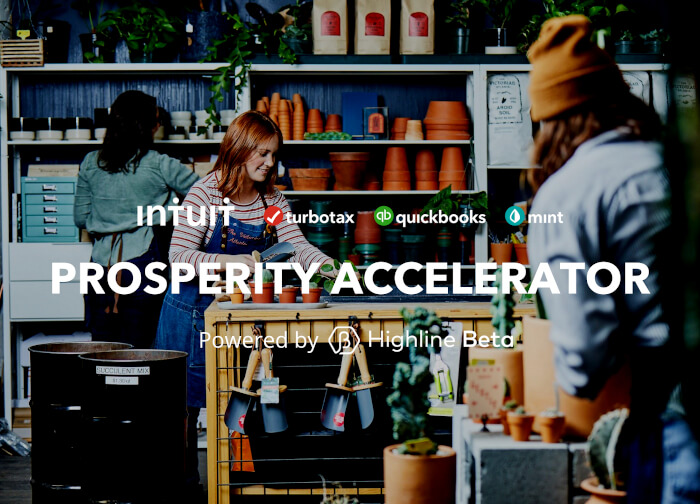This is the decade where businesses must take on large societal problems. From healthcare, education, climate change, to finance, every industry will need to throw its best talent at building the answers to systemic problems. How companies choose to tackle challenges in the wake of COVID-19 will set the precedent for how we deal with future emergencies and crises.
Solving big problems will be a collaborative effort, with exponential upside.
In FinTech, that maxim is especially true, almost by definition: it’s incredibly hard to build and scale in FinTech without institutional collaboration. While a growing user base is incredibly important for startups, what defines success in building for scale with FinTech startups is often the ability to partner and closely collaborate with traditional financial institutions like banks and payment networks.
In the wake of COVID, multinational corporations will need to rethink their business models while looking to the entrepreneurial community to help them meet both internal and external innovation goals.
One of the best-known recent successes in FinTech is the story of Visa/Plaid partnership: Visa participated in the financial services API startup’s Series C investment round, later acquiring the company for $5.3 billion, and will now help Plaid expand internationally. This partnership might even lead to a potentially transformative secure data-sharing standard for the financial industry, given banks’ already tight relationship with Visa.
There are several great examples of corporate-startup FinTech partnerships in markets around the world, often resulting in deeper product integrations and acquisitions. In the US, Intuit has snapped up Credit Karma, and FinTech unicorn SoFi acquired Galileo for $1.2B. Revolut went with Visa as its lead issuing partner to drive its global expansion.
In Canada, because of the regulatory environment and lack of open banking standards, institutional backing is not optional. FinTech startups like KOHO and Revolut were able to go to market in Canada thanks to the backing from Peoples Trust Company and Visa, which enabled both companies to deliver modern, mobile, and flexible solutions to a younger, tech-savvy user base. Still, global financial services leaders have benefited greatly from cosying up with Canadian FinTechs. Xero’s acquisition of Hubdoc led the company to build its North American tech hub in Toronto. Sensibill’s partnership with JP Morgan means both companies can bring new products to customers faster, helping them track spending and manage finances.
The COVID-19 pandemic will only accelerate this pattern of partnership. In the wake of COVID, multinational corporations will need to rethink their business models while looking to the entrepreneurial community to help them meet both internal and external innovation goals.
Financial institutions and FinTechs are already playing a key role in COVID recovery. In the US, JPMorgan Chase set aside $10.47 billion to cover potential losses on loans to borrowers hurt by the pandemic. Chime had distributed more than $1 billion in stimulus payments just as the program was announced, getting funds to their customers seemingly in a blink of an eye. SMBs have been hit the hardest, and tech companies — from Facebook, Google, Shopify, and Intuit, alongside financial institutions, such as RBC — stepped up to help, through initiatives like Intuit Prosperity Accelerator and Canada United.

But consumers and small businesses alike still need better ways to manage their finances and access resources post-pandemic. Since the onset of COVID-19, half (49 percent) of Canadians report that they are $200 or less away each month from insolvency, according to the latest MNP Consumer Debt Index. CFIB reports that 48 percent of small businesses are making half or less their normal sales, with 50 percent stating they are most concerned about their business cash flow.
At Highline Beta, we work with many startups and large corporations across the globe to help them launch new ventures and accelerate innovation. Recently we launched the Intuit Prosperity Accelerator with Intuit Canada to help solve financial challenges faced by SMBs and consumers in the wake of COVID-19. The goal of this program is to recruit a global cohort of startups that are addressing financial challenges with Intuit Canada’s ecosystem in order to run pilots, test quickly, and scale for impact. When the program launched, here’s what David Marquis, Country Manager of Intuit Canada had to say about the initiative: “Collaboration between corporations and across the global startup ecosystem will be critical to moving with even greater urgency in this fast-changing landscape. Many of these challenges are global, and I believe that if we broaden our views, expand our networks, and learn from each other, this time of crisis will bring innovative solutions that will help solve financial prosperity challenges for Canadians.”
Qualified startups that join the Intuit Prosperity Accelerator will benefit from four months of virtual programming, access to a mentorship network inside and outside of Intuit Canada, and up to $20,000 towards pilot execution, along with the opportunity for follow-on investment from Highline Beta.
Would you like to scale your FinTech startup, and work with Intuit Canada and Highline Beta to make a difference? Please consider applying to join Intuit Prosperity Accelerator by September 4th.


